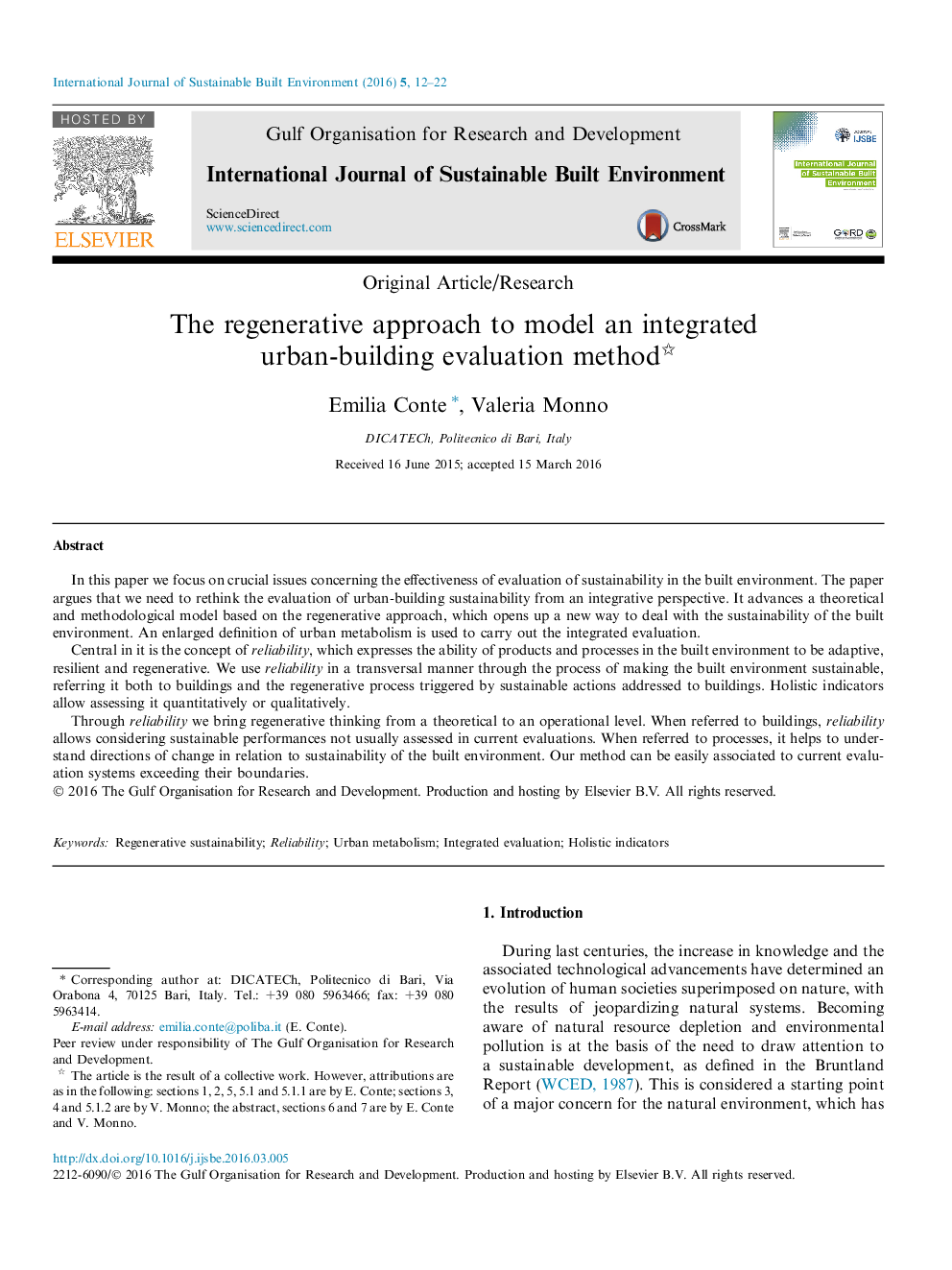| Article ID | Journal | Published Year | Pages | File Type |
|---|---|---|---|---|
| 214740 | International Journal of Sustainable Built Environment | 2016 | 11 Pages |
In this paper we focus on crucial issues concerning the effectiveness of evaluation of sustainability in the built environment. The paper argues that we need to rethink the evaluation of urban-building sustainability from an integrative perspective. It advances a theoretical and methodological model based on the regenerative approach, which opens up a new way to deal with the sustainability of the built environment. An enlarged definition of urban metabolism is used to carry out the integrated evaluation.Central in it is the concept of reliability, which expresses the ability of products and processes in the built environment to be adaptive, resilient and regenerative. We use reliability in a transversal manner through the process of making the built environment sustainable, referring it both to buildings and the regenerative process triggered by sustainable actions addressed to buildings. Holistic indicators allow assessing it quantitatively or qualitatively.Through reliability we bring regenerative thinking from a theoretical to an operational level. When referred to buildings, reliability allows considering sustainable performances not usually assessed in current evaluations. When referred to processes, it helps to understand directions of change in relation to sustainability of the built environment. Our method can be easily associated to current evaluation systems exceeding their boundaries.
